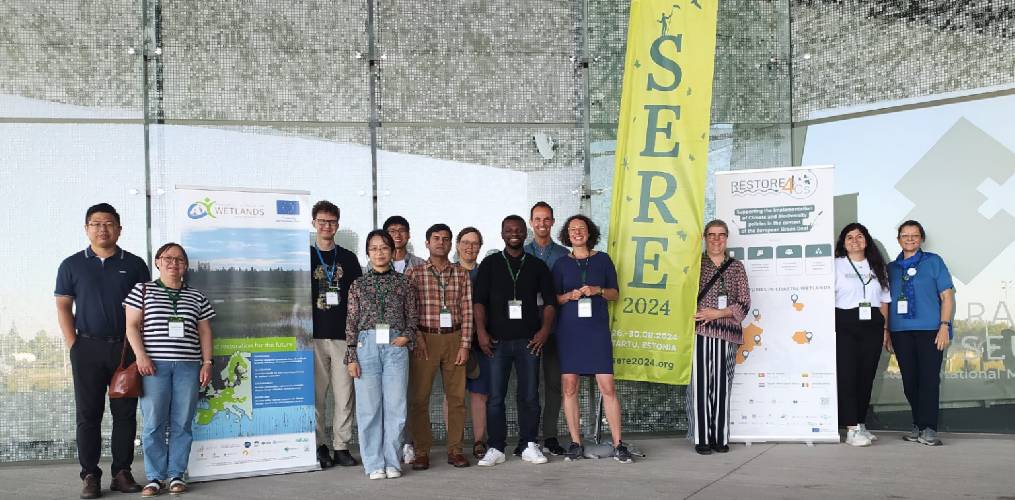
On 27th August 2024, LifeWatch ERIC has taken part to the 14th European Conference on Ecological Restoration (SERE 2024) in Tartu, Estonia, as communication and dissemination leader in the RESTORE4Cs European Project, dedicated to coastal wetland restoration. The participation involved the organisation of a booth and a joint session on wetland restoration with three related projects.
Wetland restoration is a key challenge in climate change mitigation strategies. Wetlands are crucial for greenhouse gas and carbon regulation and biodiversity support, making our planet more resilient against extreme weather events. However, 35% of wetlands in Europe have already been lost since 1970.
As RESTORE4Cs is committed to supporting the implementation of Climate and Biodiversity policies within the European Green Deal, this event is especially important for the initiative, and for LifeWatch ERIC, due to its focus on the EU Nature Restoration law, which was approved earlier this year. The law cites specific goals for restoring peatlands, a specific type of wetland, due to the large contribution of degraded peatlands towards Europe’s carbon emissions.
RESTORE4Cs supports these objectives by gathering data on restoration and land use management actions, upscaling models and integrative assessment tools, structuring a European Community of Practice (ECoP), and co-designing a multi-actor approach.
LifeWatch ERIC has taken part in the conference, represented with a booth overseen by Madeira Scauri (EU Project Communication Officer), and a joint session with the other three wetlands projects ALFAwetlands, REWET and WET HORIZONS, marking the first time the project coordinators have met in person.
Liisa Ukonmaanaho from the Natural Resources Institute Finland (LUKE), who coordinates the ALFAwetlands project, expressed that meeting fellow project coordinators in person after numerous virtual meetings was particularly rewarding. She also highlighted the participants’ strong interest in wetland restoration, biodiversity and climate change.
Vanessa Ferreira de Almeida from IDENER, the coordinator of the REWET project, noted that their participation in SERE 2024 highlights the critical role of collaboration in tackling climate change and biodiversity loss through nature-based solutions.
The four projects focus on different aspects of wetland restoration across Europe, studying various wetland types to provide both general and region-specific data. Their shared goals include addressing knowledge gaps and developing decision support tools for policymakers.
The projects’ research and findings were presented in a dedicated session on wetland restoration at the SERE 2024 conference. Co-chaired by the project coordinators, the session was split into two parts. The first part, led by ALFAwetlands and WET HORIZONS, focused on improving geospatial knowledge and understanding the impacts of wetland restoration on biodiversity, greenhouse gas emissions, and socioeconomics. The second part, led by REWET and RESTORE4Cs, explored optimising wetland management for carbon sequestration and the effects of restoration on coastal wetlands’ ecosystem services.
One key takeaway from the conference, concerns the importance of collaboration among scientists, policymakers, and other stakeholders to develop sustainable solutions for wetland restoration and climate action.
Read the news and Press Release on the RESTORE4Cs website to learn more: https://www.restore4cs.eu/wetland-experts-come-together-at-the-sere-conference-in-estonia/